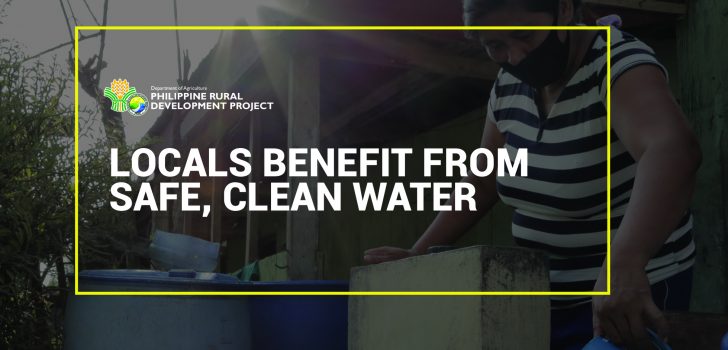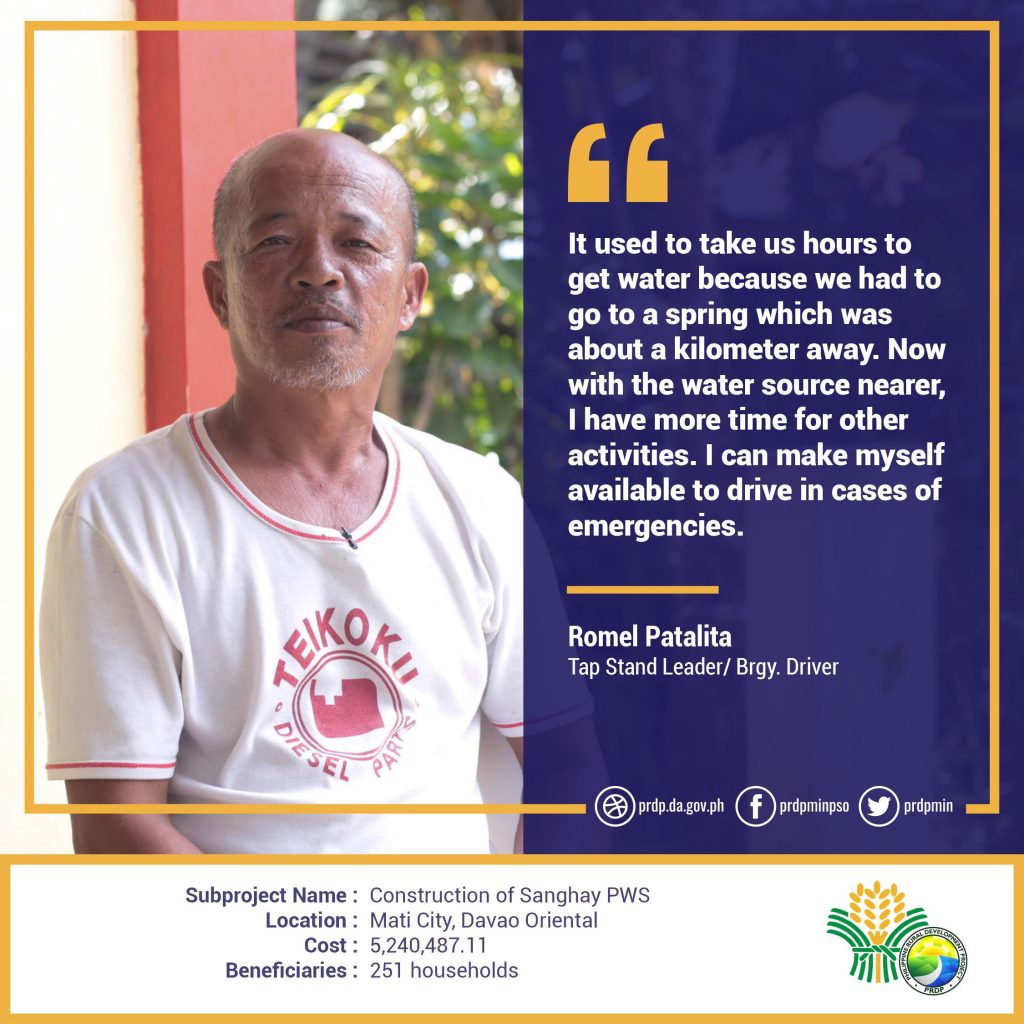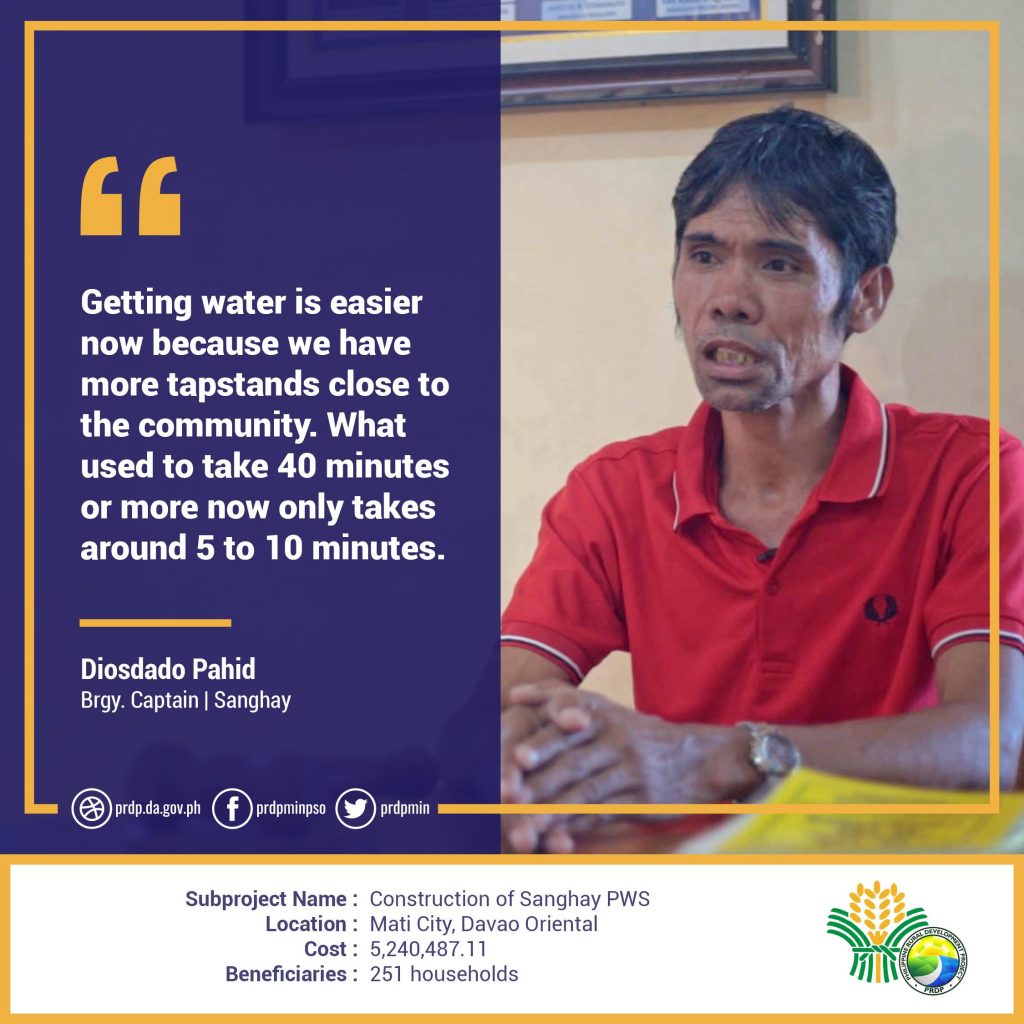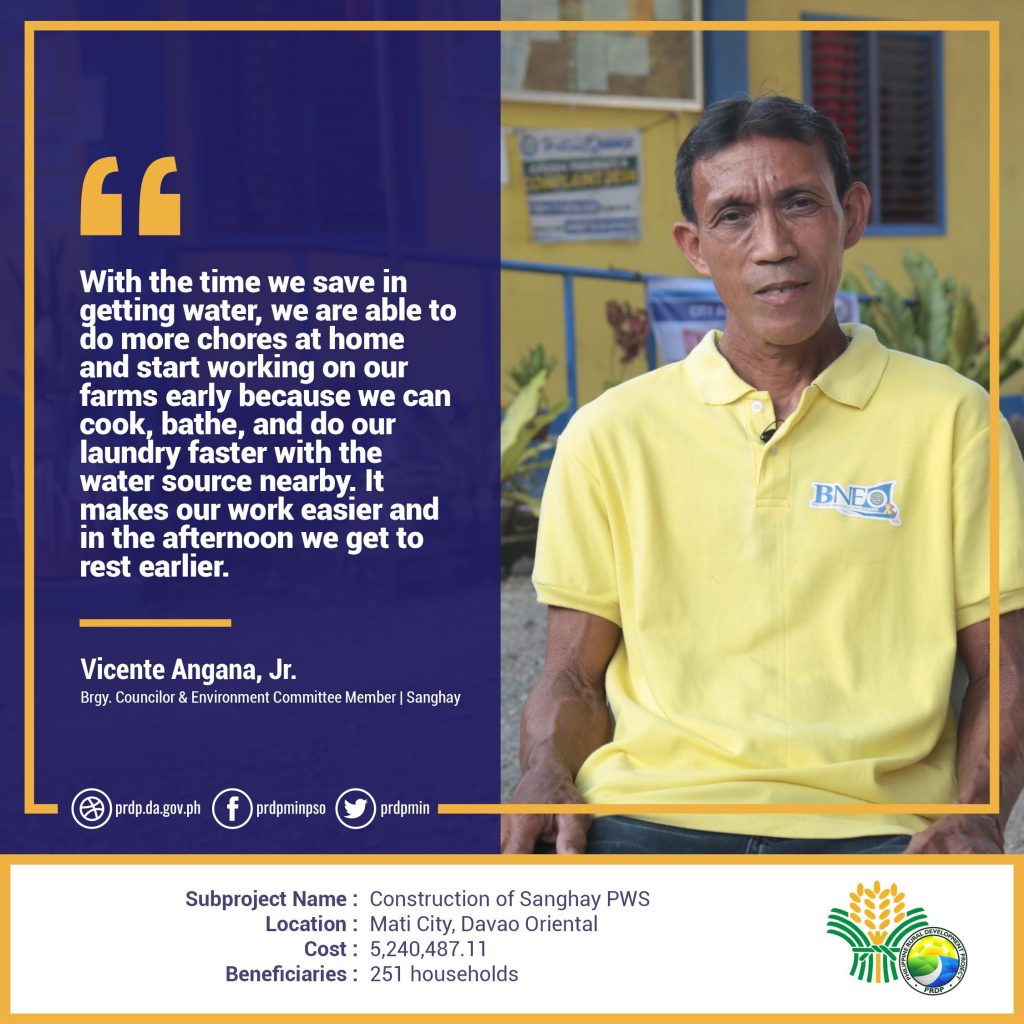
Locals benefit from safe, clean water
Mati City– Water plays a vital role in our lives, yet there are still many communities that don’t have access to clean and safe drinking water.
For people in Brgy. Sanghay in Davao Oriental, one of their dreams is to have a safe source of drinking water in their community. For decades they relied on rivers or deep well as their source of water which imposed the risk of acquiring waterborne diseases.
Sanghay Barangay Captain Diosdado Pahid recalled their difficulties in fetching water where they had to walk a few kilometres to their nearest source such as deep well, spring, or river. He recalled that during the rainy season, the river got flooded and they had no choice but to go to a farther source.
Their first water system project was implemented way back in the 1970’s. While they had a tapstand common station, their problem was the time they had to wait in line for their turn to collect water. Usually, they would start around 4:00 p.m. to 6:00 p.m. This resulted in some other residents going back to using deep-well water or river.
When they heard about the Department of Agriculture-Philippine Rural Development Project (DA-PRDP) in 2018, they immediately sought the assistance of the city planning office to comply with all their requirements to apply for the potable water system (PWS) project.
The construction of potable water supply level II is worth P5.24 million comprising one unit intake box and 37 taps stands. It was completed on January 16, 2019 and now supplies water to 222 households. Aside from that, the barangay also added three (3) tap stands which they placed in the school and one (1) in the barangay.
Potable water supply system is established primarily to improve the health status and reduce the medical expenses, morbidity and mortality incidence in beneficiary areas of the Project.
As part of DA-PRDP’s assessment of the success of its completed subproject, a Rapid Appraisal of Emerging Benefits (RAEB) was conducted in Brgy. Sanghay Potable Water Supply Level II.
Based on its recent RAEB activity in the said barangay, 100% of the beneficiaries or 32 respondents who joined the RAEB used the water from PWS for drinking purposes; 78% used it for bathing; 59% used it for comfort rooms; 81% for cooking; 39% for watering crops and vegetables; 72% for kitchen activities; 78% for laundry; 28% for poultry and livestock; 81% for washing hands; and 100% for other purposes such as household cleaning, watering of plant, and livelihood.
One of the biggest impacts of PWS is the time saved by the beneficiaries from the reduction of time they spent on water collection. The current location of water tap stands are closer to their house where it would not take them a few minutes to fetch water. Beneficiaries use the extra time for other economic activities, recreation, tending to their farms, and family time.
Brgy. Kagawad Vicente Angana Jr. said that unlike before where fetching water could be really time consuming, the presence of available sources of water nearby allowed them to do more time for other chores.
“With the time we saved in getting water, we are able to do more chores at home and we can start working early in our farms because we can cook, bathe, and do our laundry faster with the water source nearby. It makes our work easier and in the afternoon we can rest earlier,” said Angana.
Currently, Barangay Sanghay has a water association called BAWASA which ensures the facilitation and operation of the water system in the barangay. Through this association, they were able to establish its constitution and by-laws, policy on water usage, operation and maintenance, membership, and monthly dues.
The association is now collecting P50.00 for membership fee, and P20.00 for monthly dues which are being used for minor repairs and maintenance.
The barangay is also providing support to BAWASA through passing a resolution that will maintain the cleanliness of the water source.
“In our barangay, we secure our source of water. We have an ordinance prohibiting the cutting of trees within 50 meters from the source of water, we also conduct two (2) monitoring activities each month to check if there are no problems in the mainline, or if there are no garbages thrown around the area. We wanted to ensure our water is clean for the safety of our people here,” said Angana.
As part of BAWASA’s future plans, the organization will be processing their registration with DOLE and will also check if their current water supply can allow them to upgrade to a level III water system. (Joy M. Montecalvo| PSO Min)



